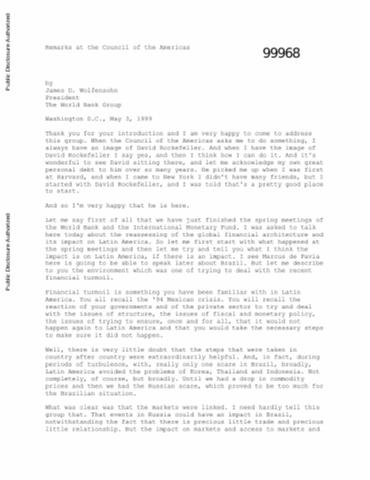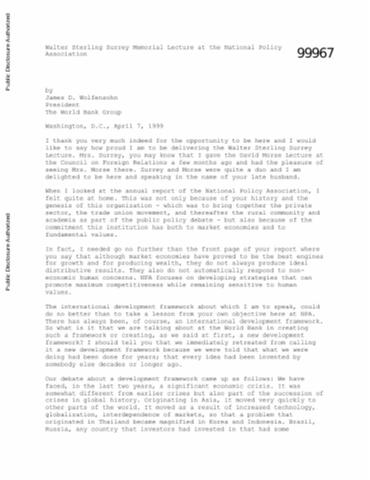Remarks at the Council of the Americas
James D. Wolfensohn, President of the World Bank Group, reassessed the global financial architecture and its impact on Latin America. Latin American countries, being small economies, are very vulnerable to world pressures. After a huge drop in private sector finance, we’re seeing the first signs of return. What we need now is greater transparency and supervision in banking and the private sector—and a better common set of principles and standards. We need decent government, trained government, with capacity at all levels. We need legal systems that work.




